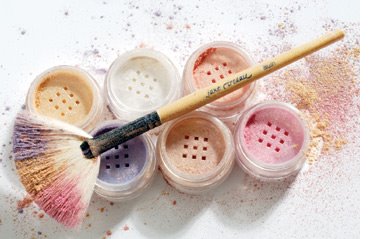
Among the main reasons most of us don’t garner the cancer-protecting benefits of sunscreen is because we simply hate to apply them – and when we do, experts say we often don’t apply them frequently enough.
Now, scientists say there may be a way to boost the sun protection of sunscreen – and help the protection last longer – and it comes in the form of a nutrient you swallow and not apply!
In a meta-analysis of numerous studies now reported in the journal Photochemistry and Photobiology, German researchers write that taking a daily dose of the nutrient beta carotene for a minimum of 10 weeks appears to offer a level of 24/7 sun protection, over and above what traditional, topically applied sunscreens provide.
The report adds to a growing body of evidence supporting the idea that skin protection starts from within - including not only protection from skin cancer, but also premature aging.
Moreover, the group also found that for every month of beta-carotene supplementation passing the 10-week mark, the sun protection factor increased.
Beta carotene is considered a “carotinoid’ – a nutrient that comes from plants and is converted by the body into Vitamin A. But it also has powerful antioxidant activity on it’s own – and therein may lie the secret to it’s sun protection success.
Sun Screen, Skin Aging and Beta Carotene
One of the ways in which sun damages skin – including aging it – is via the production of free radicals. These are molecules produced in skin when we are exposed to both UVA and UVB rays of the sun.
In terms of aging, free radical molecules literally gobble up collagen and elastin – the support structure underneath skin that keeps it taunt and wrinkle free. Once collagen and elastin decline, skin sags and wrinkles and lines appear.
In terms of skin cancer, these same free radical molecules also produce what is known as “oxidative stress”. This causes changes in the DNA of skin cells that eventually can lead to skin cancer. According to the American Cancer Society, each year there are nearly 60,000 new cases of melanoma skin cancer - the most serious and deadliest form of this disease – from which almost 8,000 lives are lost annually.
One of the ways in which traditional, topically applied sunscreen works is by blocking or absorbing ultra violet light before it has a chance to penetrate skin and damage cells. But, it only works when you apply enough of it – and re-apply it often enough.
And while no one is certain exactly how beta-carotene increases that protection, many believe it protects skin by quenching those nasty oxidative molecules before they get a chance to damage cells. Another theory holds that beta-carotene may interfere with various cell signals deep within the DNA - messages that may ultimately keep oxidative stress from doing any serious damage. .
Indeed, evidence has been mounting to indicate that a number of nutrients, including lycopene, lutein, and superoxide dismutase (SOD) may also help protect skin from within, working to squash oxidative stress and in the process reducing both premature skin aging and the risk of skin cancer.
What This Means For You
First, it does not mean you should exchange sunscreen use for a vitamin supplement. At best the protection provided by beta carotene is a consistent SPF 4 –a good start, but without the use of additional sunscreen you'll be getting only the barest minimal protection and not enough to keep you safe in strong sunlight.
Indeed, researchers stressed it’s not a matter of “one or the other” – you need both.
Although there is no recommended daily amount (RDA) of beta-carotene, it requires about 6 mg to meet the conversion rate necessary to meet the RDA for vitamin A – which stands at about 2,300 international units for women, and 2,500 international units for men.
Making sure your body gets at least this much may go a long way in helping to protect your skin and keep you looking younger longer. Foods high in beta-carotene include eggs, and low fat milk and cheese, or fruits and vegetables such as carrots, apricots, peaches or cantaloupe.
One important note: Since too much vitamin A has been associated with birth defects, if you are pregnant or nursing, make certain your supplement intake does not exceed that found in your prenatal vitamin.
To Learn More:
To learn more about this study click here.
To find out which new sunscreens make the grade – and which ones won’t give you the protection you need, click here.
Visit RedDressDiary.com - or YourMenopause.com – the source for midlife health and beauty.




































No comments:
Post a Comment